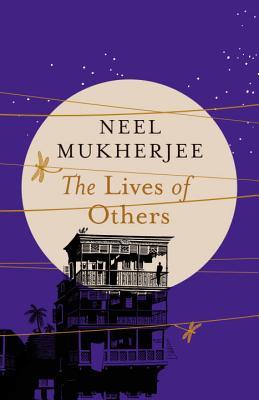Why did they all think alike? Typical bourgeois brainwashed homogeneity? How else could this unvarying calculus about the worth of one's own kind measured against the lives of others have come about?The Lives of Others is one of my favourite types of books: a multigenerational family saga set in an unfamiliar locale in which I can learn about how other people live; their social customs, food, clothing, education, etc. In this book, set in the late 60's, we meet the Ghoshes -- three generations of upper-middle class Bangladeshis -- who all live together in a four storey home on the south end of Calcutta. The patriarch -- starting with nothing but the self-confidence resulting from a privileged upbringing -- built a paper mill empire, and his five children and their families all occupy the family home he established; their status within the family fixed by which floor they are assigned to live on, what food they are served to eat, how many outfits they are bought for festivals, and a multitude of other cues that reinforce their standings daily. The attitudinal gaps between the generations quickly become apparent: the patriarch and matriarch believe in hard work and expect the rewards that will follow; the sons of the next generation understand that they are to join the family business, and since duty forces them to comply (even if they feel that they are suppressing their own dreams), they find subtle ways to rebel; and the third generation, long used to luxuries without effort, descends into decadence and degeneration. The exception is the oldest grandson, Supratik, whose inability to recognise how the family fortune was indeed earned leads him to become influenced by the Communists while at university, and growing disgusted by the extravagance and petty jealousies displayed at home, leaves to join the militant Naxalites:
Ma, I feel exhausted with consuming, with taking and grabbing and using. I am so bloated that I feel I cannot breathe any more. I am leaving to find some air, some place where I shall be able to purge myself, push back against the life given me and make my own. I feel I live in a borrowed house. It’s time to find my own. Forgive me.I was familiar with the Naxalite movement from last year's The Lowland by Jhumpa Lahiri, so the diary segments from Supratik's time with them were fascinating to me: even though they carried out a radical and militant form of Communism (using bombings and targeted murders in an effort to spark a nation-wide revolution) that appalled me, the descriptions of the working life of the rural poor (and not just the back-breaking work and near starvation but their manipulation by the landowners and moneylenders) would lead anyone of a compassionate nature to want to make radical changes to Indian society. The politicians and police are at the service of whoever will bribe them the most, and as surely as if it were really written on the foreheads of the poor, no one is able to rise above their station; there truly is no connection between effort and reward, with the rich getting richer and the poor getting poorer. And yet, author Neel Mukherjee doesn't lionize or mythologize the Naxalites here: every action has its consequences -- generally unfavourable, sometimes incredibly gruesome -- without changing the big picture. Even the family's long-serving cook Madan (from a very poor village but brought in when he was 10; now considered more family than servant) begs Supratik to begin his charity at home:
Boro-babu, the world does not change, you destroy yourself trying to change it, but it remains as it is. The world is very big and we are very small. Why cause people who love you to go through such misery because of it?The Lives of Others is a very well written book, an epic full of fascinating details and interesting plotlines, all asking us to question the status quo; to indeed imagine the lives of others, to stretch empathy to the point where we stop bickering about who has more but wonder who needs more and how to give it. I will be interested to see how the Man Booker Prize judges weigh this rather traditional narrative against the more difficult volumes on their shortlist -- my instinct is that they're going to favour the inscrutable. Pity, that.
Man Booker Prize Shortlist 2014, with my ranking:
The Narrow Road to the Deep North by Richard Flanagan
The Lives of Others by Neel Mukherjee
To Rise Again At a Decent Hour by Joshua Ferris
We Are All Completely Beside Ourselves by Karen Joy Fowler
As J hasn't been released yet I'll make my unasked-for prediction based on the five I have read: I think the winner will be How to be both since this kind of "alternative storytelling" is the focus of this year's list. From the shortlist, my favourite would be The Narrow Road to the Deep North, followed by The Lives of Others (with my favourite from the longlist being the overlooked History of the Rain). Now, to crack the Giller Prize longlist.

